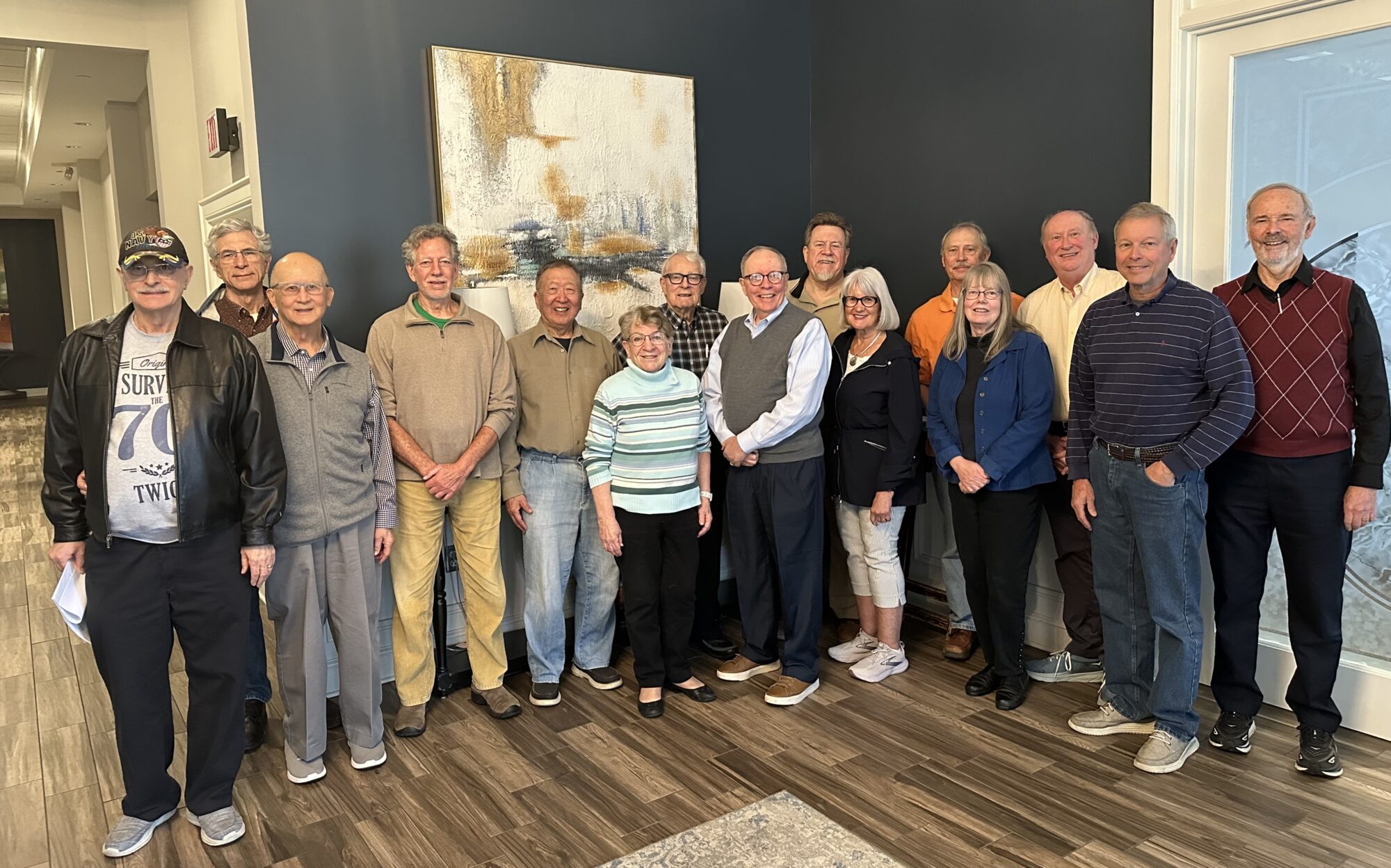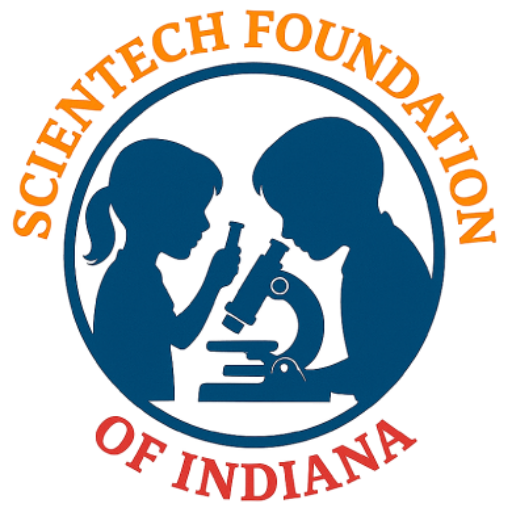The Scientech Foundation of Indiana (formerly the D.J. Angus - Scientech Foundation) changed its status from that of private foundation to a 501(C)(3) public charity in 2023. The Foundation was initiated by Bob Annis in 1967 to create an appropriate and lasting memorial to Donald J. Angus, an outstanding Indianapolis engineer and citizen and a founder and charter member of the Scientech Club. It was
created as the philanthropic arm of the Scientech Club, but has expanded its scope and purpose as a public charity. The stated purpose of the Foundation “is to fund educational programs in Indiana, which educate students in the fields of science, technology, engineering, healthcare, and any other related fields of learning.”

The following is an account of the history and significant activities of the Foundation:
A principal focus of the Foundation in its early years was to support the Indiana Regional Science Fair. In 1960 the National Science Fair was held in Indianapolis. Judges were needed. Scientech Club members served as volunteer judges. For the next forty years, Scientech members served as the judges for the Science Fair in Central Indiana. Financial awards were given to the top student exhibitors. For many
years, slide rules were given to competitors. More recently, laptop computers were awarded to the winners.
Funding college scholarships was another early initiative of the Foundation. The first one established was the annual Dr. Ron Ward Scholarship at GVSU to support science research. A financial need scholarship was then established for Rose Hulman students. Scholarships for STEM students at Indiana University, Purdue University, and IUPUI followed. In the late 1980's the Most Improved Student Award was given to a student who improved his or her grades significantly from one year to the next. Eventually, students at 19 different colleges/universities received a $1,000 scholarship through the Most Improved Student Award program.
Another major beneficiary in the early years of the Foundation was the Children's Museum. Science outreach and educational programs within the Museum were funded. Scholarships were given to disadvantaged youths and “Science Works” programs were funded for children as young as three years old and up through senior year in high school. From 1999 to 2009, $30,000 - $36,000 per year was given to the Children’s Museum by the Foundation.
From 2001-2006, $7,000 was donated each year for the Science Olympiad held at IU or Purdue. Annual donations were also made to the Boy Scouts and Girl Scouts in the amounts of $500 - $750 to support their science education programs. The Learn About Business program at Wabash College received an annual grant of $3,000, as did the Purdue Seminar for Top Engineering Prospects. Annual scholarships for STEM students in the amount of $5,000 were given to Rose Hulman, IU, IUPUI, Purdue, and Grand Valley State University.
After 2010, based on research and data provided to the Foundation members, individual scholarships were largely curtailed. Funding STEM program for pre-K through grade 12 became the primary focus of Foundation grants. This refocus was due to the understanding that the earlier students develop an interest in science the more likely they are to enter STEM fields. And, the Foundation Board concluded
that grants to fund programs which affected many students was more effective than
funding individual scholarships.
Given this commitment, a wide variety of educational programs have received Foundation grants since 2010. An early recipient was the Ornithology Center at Eagle Creek Park, which is visited by nearly one thousand school children yearly. The Herman B Wells Program at Riley Hospital, in which high school students engage in original research under the guidance of senior medical staff was another. The program required student participants to write an abstract and give an oral presentation on their research.
An innovative program initiated through Foundation funding was the Scientech Summer Institute for Advancing Science Education in Indiana. 5-days of in-depth classes for Indiana teachers were conducted by university faculty members. By the end of the week, the teachers developed new curricula for the classes they would teach during the next school year. Teacher-participants received a stipend for
completing the program. The Foundation funded the institute for three summers, after which it was taken over by Ball State and the University of Indianapolis. In 2023, the Indiana Dept. of Ed. took over funding the program and has made it available statewide and through multiple universities. HERE for more information on the Institute and a letter from a teacher participant.
Summer science camps have become a major focus of Foundation grants. Marian University, IUPUI, Earlham College, and Cold Springs School have received grants in the amounts of $10,000 to $15,000 to support their summer STEM camps. IU Medical School has received annual funding in that amount to support its Mini Med School for inner city and rural high school students. The STEM Connection, a
year-round program for extra-curricular science-based programs is another beneficiary of annual grant funding by the Foundation. The Jordan YMCA’s preschool physics program has also received an annual grant to introduce children to science at the earliest stage of comprehension.
To address the discrepancy in female participation in STEM ed. and careers, the Foundation has financially supported Girls Inc.’s Eureka program and IUPUI’s Power Engineering program.
Two of the most impactful grants of the Foundation went to Oaks Academy and Stout Field Elementary. These two schools each received $25,000 to purchase all the needed equipment and materials to create science labs in the schools. Robotics competitions have become popular extracurricular activities for middle and high school kids. The Foundation has provided funding to VEX Robotics, a team based in Lawrence Township, to help purchase equipment for participants who are unable to afford the cost of the needed materials.
The Scientech Foundation of Indiana is funded through donations, bequests, and memorial gifts made to the memory of an individual. The Foundation’s investment advisor and broker is Planned Investment Co., Inc. General Board Meetings are held four times per year, as are Investment Committee meetings. Officers and Board members are elected to serve annual-renewable terms. They are volunteers and are not compensated for their services.
 © 2026 Copyright Scientech Foundation of Indiana Inc. All Rights Reserved
© 2026 Copyright Scientech Foundation of Indiana Inc. All Rights Reserved